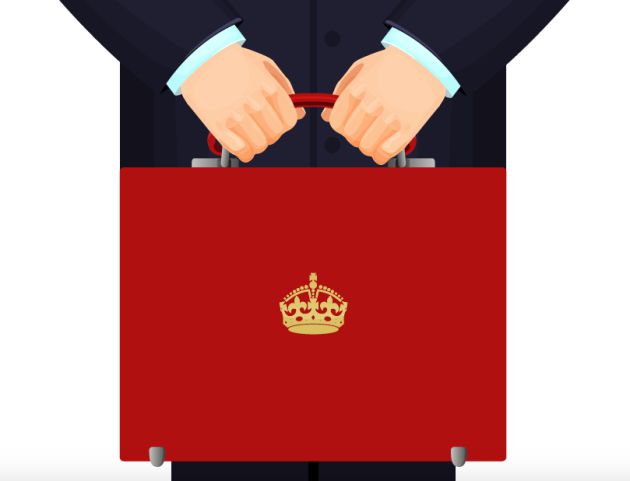
As Brexit looms, is this the worst-timed duty rise in wine's history?
An inflationary rise for alcohol will kick in on February 1 – less than two months before the UK officially leaves the EU, further squeezing businesses stockpiling and looking to plan ahead. Harpers looks at what this means for a great British industry
Aside from the additional strain of the rise to the living wage (compulsory for employees aged 25 or over), Monday’s Budget actually looked pretty good for many areas of UK trade.
Duty was frozen on spirits, cider and beer, while businesses with a rateable value of £51,000 or less will have their rates cut by a third – a windfall that will apply to 90% of restaurants, cafes, pubs and shops.
Most, like Kate Nicholls, chief executive of UKHospitality, hailed this move to cut bills for smaller businesses as “much-needed support” for high streets, which have been “devastated by spiralling costs”, and called for the new digital business tax to further ease “the unfair tax burdens being shouldered by hospitality businesses”.
However, the 190,000 people working in the UK wine sector are not in a celebratory mood now that a bottle of still wine is due to go up by 7p – and sparkling and fortified by 9p – in February, just a month before Brexit.
According to Simon Stanndard, European and international affairs director at the Wine & Spirit Trade Association (WSTA), it couldn’t have happened at a worse time.
“The one thing businesses are doing to anticipate a no-deal Brexit is bringing wine in from Europe and doubling stock to avoid disruption. This is already going to be a huge strain on their cash flow. A larger amount of stock means you need a bigger duty guarantee, which will also go up because of duty rises. Stockpiling also means less investment as less cash will be available for other things. It’s a real kick in the teeth,” he said.
As Andrew Lundy, managing director at Vino, pointed out, the hikes are applied to all bottles regardless of cost price or RRP, further penalising the majority of wine drinkers.
↓
Tricky times
Michael Saunders, chief executive of Bibendum PLB, added: “Considering the average retail price of a bottle of wine in the UK is £5.39, only 53p pays for the wine itself. This tax rise will not help in what is already a tricky market.”
Stannard agreed an increase, no matter how small, is not negligible: “The Treasury forecasts that a small price change makes no difference to the consumer. We disagree. Once that increase pushes a product above a certain price point, we know it makes a difference – £6.99 suddenly become £7.07. Even though still wine will rise by 7p, it’s 8.5p with VAT by the time it’s on shelf. That’s asking quite a lot.”
However, some see the bright side in delaying the hikes until February – particularly when it comes to the Budget change from spring to autumn and providing certainty for businesses.
“This has hopefully set a precedent as last year there was no duty increase, so no one knew whether Hammond planned to increase it immediately or in the new year,” said Ted Sandbach, managing director at The Oxford Wine Company. “Had he done so immediately, we would almost certainly have had to apply a surcharge on wine to the trade for a four- to five-month period.”
By now, it will come as a surprise to no one in the supply chain that wine is being left behind. Despite overtaking beer in 2012 as the largest duty contributor to the public purse, and actually boosting Treasury coffers by an extra £39 million between February and August following November’s freeze, wine is still seen as the drink of those who can afford it.
More than ever, now is the time for businesses to shout loud and clear about what they can offer, and that is quality service and top-notch wines that can speak for themselves.

Stephen Finch, founder and managing director, Vagabond
On wine duty increases:
“The prejudicial treatment of wine versus other alcohol categories is not surprising. Politicians won’t dare punish beer or cider (large domestic production), or spirits (because of whisky and gin), whereas wine is not a big domestic production business yet. And I suspect politicians view wine as being the preferred drink of those ‘who can afford higher rates’. It makes me wonder what the WSTA is good for if they keep losing this argument with the government.”
On business rates:
The supposed business rates relief will not apply to us at Vagabond. I’m fairly certain it’ll be the same story for anyone with a property in London.

Andrew Lundy, managing director, Vino
On wine duty increases:
Wine duty will harm all of our businesses as the supermarkets will be able to absorb costs, but we have to pass it on. This further tax on wine is aimed at the lower- to middle-class wine drinker who is focused on price. We already have minimum pricing in Scotland, and yet here is another push to make someone drinking a £6 bottle of wine pay disproportionately more than someone drinking a £30 bottle, in the full knowledge that the government and their millionaire friends do not have to ever consider this when buying wine.
On business rates:
The Budget is frustrating as the issue of business rates is devolved in Scotland so doesn’t apply to us – not something that the chancellor was open about. But broadly speaking this is a great move for a country trying to combat the eradication of the high street by capital. Charity shops and nail bars cannot sustain our communities, which need retailers who will drive through snowdrifts to get supplies to customers.

Ted Sandbach, managing director, The Oxford Wine Company
On wine duty increases:
The wine duty increase is very irritating especially when, yet again, beer and spirits are frozen. This does little for the sparkling wine industry, which needs to be encouraged to survive and evolve. Why will the chancellor not consider harmonising duties with sparkling wine – freeze sparkling to help the UK market until gradually they become the same.
On business rates:
I’m generally very pleased. The rates cut will affect our three wine shops, so some real savings there.
Alcohol duty: What’s the rub?
Wine was notably absent from Philip Hammond’s Budget delivery in the House of Commons this week.
As a result, as per the government’s 2017 policy paper, excise duty for alcohol will rise with inflation in 2019, which has now been forecasted by HMRC at 3.1%.
This duty applies to all alcohol products in the UK, payable by an importer or freight forwarder once the product goes into circulation in the UK – for example at the port of entry or when it leaves a bonded warehouse – or by an English wine producer at the point it leaves their storage facility.
Keywords:
- rise
- strain
- aside
- additional
- compulsory
- living
- wage
- additional strain
- living wage
- wage compulsory
- living wage compulsory






